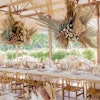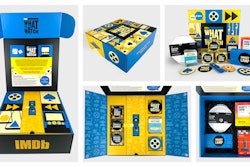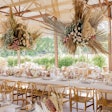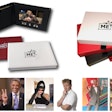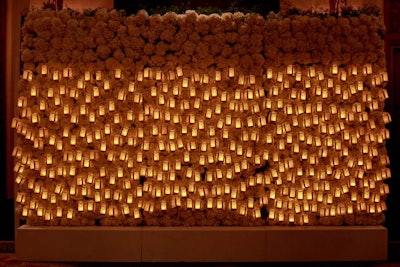
1. Show what you stand for
Identify your brand’s core principles and values, and weave that message throughout the fiber of the event—from hospitality to logos to colors. “Just as a couple might think of themselves as informal or eco-conscious and therefore host the party in such a style,” corporate event planners should make choices that reflect the fundamental company culture at their events, says Xochitl Gonzalez of AAB Creates in New York. “[Brand messaging] can be reflected in style of food service, the manner in which guests are greeted, or even the way your staff is attired.”
2. Think big—while focusing on the details
Sure, the marketing message is fundamental to a corporate event. But guests will miss key themes if they are lost in an event space or experience a delay at the coat check, so don’t for get to manage the details while mastering the message. “With a wedding, brides perfect every detail they can. [Similarly] at corporate events, each element contributes to the overall guest experience,” says Alexandra Rembac of Sterling Engagements in Los Angeles. “Whether it’s something as simple as stylized directional signage, food description cards at stations, or even props at the photo booth that complement the overall event concept, these things make a difference.”
3. Treat each guest as a V.I.P.
Dedicated V.I.P. sections are often appropriate at corporate events, but they can also isolate guests. Consider all guests of equal importance for both hospitality and basic political reasons. “At weddings, we know that the mother of the bride and the sister of the groom are important, but we also know that random Joe at table 28 might be the bride's boss,” Gonzalez says. “All complaints and comments need to be treated with validity and immediacy equally.”
4. Find a way to get from “no” to “yes”
“Perfection is reflected in the details, so be sure to offer maximum flexibility in accommodating special or out-of-the-ordinary requests,” says the Skirball Cultural Center’s vice president of hospitality and private events, Marilyn Delanoeye. Whether addressing the personal concerns of a bride, or the messaging needs of a corporate sponsor, “the business of hospitality is built on partnerships.”
5. Rely on service, not signage
Private events like weddings typically rely on informed staff—not visual signage—to direct guests and set the stage for an intimate experience. “Yes, branded signs directing people to the coat check or the restroom are fantastic,” Gonzalez says. “But what has a real impact on people is a waiter or team member directing them. The personal touch reflects just as strongly on a brand host as it does on a bride and groom.”
6. Minimize crowding, and make food and drink as easy to get as possible
Think about guests’ basic needs of nourishment, hydration, and comfort—and fulfill those without delay. “At weddings, an open and accessible bar is paramount, and drinks upon entry is customary,” Gonzalez says. “A well-lubricated event leads generally to happier guests, so don't scrimp on your bars.”
Lisa Gorjestani of Details Event Planning in Los Angeles adds, “Have the staff tray-pass the seating cards during cocktails. Guests will love the personal service and avoid the bottleneck at the seating card table.”
7. Make giveaways useful and personal
“At a wedding, there is swag big and small, just as there is at a corporate event,” Gonzalez says. “The key difference is wedding swag is designed with the guest experience in mind. A thoughtful and relevant gift—say, a shawl with a branded tag at an outdoor event—has way more impact than a branded, irrelevant one, like a flash drive at the same outdoor party.”
8. Interpret trends in unexpected ways
While a bride may strive to plan a wedding that’s uniquely her own, she’s also likely to find inspiration from trends. Corporate event design should take a similar approach. “Most brides want to be original, but they also want that look they fell in love with in that picture they saw on Pinterest,” Rembac says. “It’s our job to develop that look yet recreate it in a way that makes it newer, not like the photo, and thus one-of-a-kind. Guests appreciate being able to walk into the same room four or five times a year and it not always looking the same.” So make sure to do something surprising, she says.
9. Leave nothing to chance
Just as every bride regards her wedding as the most important day on the calendar, so should every corporate planner. “Every aspect of both ceremony and celebration should be documented, verified, and reconfirmed,” Delanoeye says. “[This includes] inclement weather [contingencies], a master timeline with delivery schedule and point-of-entry for every vendor, and [seamless] internal communication.”
10. And sometimes, throw the accepted standards out the window
Breaking from traditional protocol—from wedding etiquette to corporate event format and structure—can make for an unexpected experience guests won’t soon forget. Plus, it can help cut through the fatigue and calendar clutter frequent event guests experience, especially during a busy season. “Sorry, Emily Post, but sometimes we need to break the rules,” Gorjestani says.
